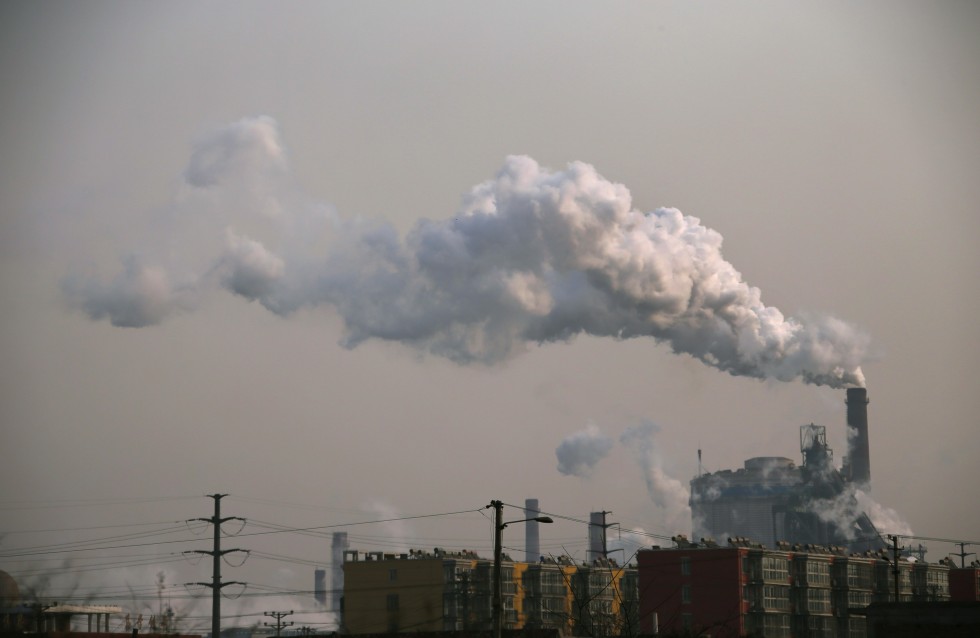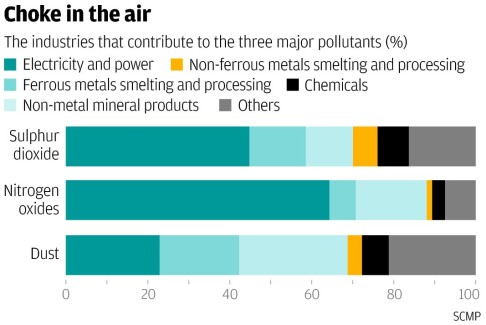- Joined
- Jul 23, 2012
- Messages
- 266
- Points
- 0
Green groups name and shame China's publicly listed polluters
Green groups call out companies for compounding the smog crisis
PUBLISHED : Wednesday, 10 December, 2014, 3:36am
UPDATED : Wednesday, 10 December, 2014, 3:36am
Li Jing [email protected]

Hebei is China''s dirtiest province. Photo: Reuters
Mainland environmental groups have named and shamed big publicly listed polluters, accusing more than 200 Shanghai or Hong Kong-listed firms of worsening the country's smog crisis with unchecked emissions exceeding national standards.
Using pollution data published by government agencies, the Beijing-based Institute of Public and Environmental Affairs (IPE) for the first time compiled an extensive database of public companies' environmental practices, finding that 1,069 of the firms, or more than 40 per cent of those on the mainland, had recorded violations.
The biggest environmental offenders were firms involved in the power, cement, non-ferrous metal smelting, iron and steel, and chemical sectors, the group found.
The group found that 34 out of 36 listed iron and steel companies on the mainland had environmental violation records. And nearly 80 per cent of the mainland's listed power companies also had a record of breaches.
The group tracked more than 200 companies - many of them large state-owned firms - in the biggest smog-related sectors over 92 days between August and October, and found widespread environmental violations by their local branches and subsidiaries.
In Beijing yesterday, the institute and two local green groups from Hunan and Jiangsu provinces singled out a number of listed companies for repeated violations. These companies included top state enterprises Sinochem International Corp and Aluminum Corp of China Ltd (Chinalco).

"Some of their subsidiaries were even emitting beyond national standards for most of the time during the 92-day period, meaning they were not running their pollution treatment facilities at all," IPE director Ma Jun said.
"Such findings are alarming, especially because many of the publicly listed companies are large state-owned firms, which should have better resources to tackle pollution.
"It also shows the failure of oversight of the local authorities."
Ma said that power plants, coking companies, cement mills and aluminium smelters in Shandong and Hebei provinces, the mainland's most polluted areas, pumped out high levels of pollution even on days of heavy smog, when emergency regulations demand a cut in production.
Sinochem and Chinalco could not be reached last night for comment and did not issue a company statement in response to IPE's findings.
But according to IPE, Chinalco said it would follow up on the issue in accordance with its internal procedures.
IPE's repeated calls to Sinochem's environmental affairs department were unsuccessful, it said.
Gu Beibei, lead researcher for the IPE report, said one Shandong state-owned enterprise, which had a record of violations in Jinan and Laiwu, told IPE that smog was "no big deal for us".
The environmental groups also called for investors to heed the risks of investing in such companies.
But Guo Peiyuan, founder of environmental consultancy SynTao, said: "Investors won't really care the environmental problems as long as the cost for violating the environmental laws are lower than abiding by them."
Additional reporting by Kwong Man-ki
